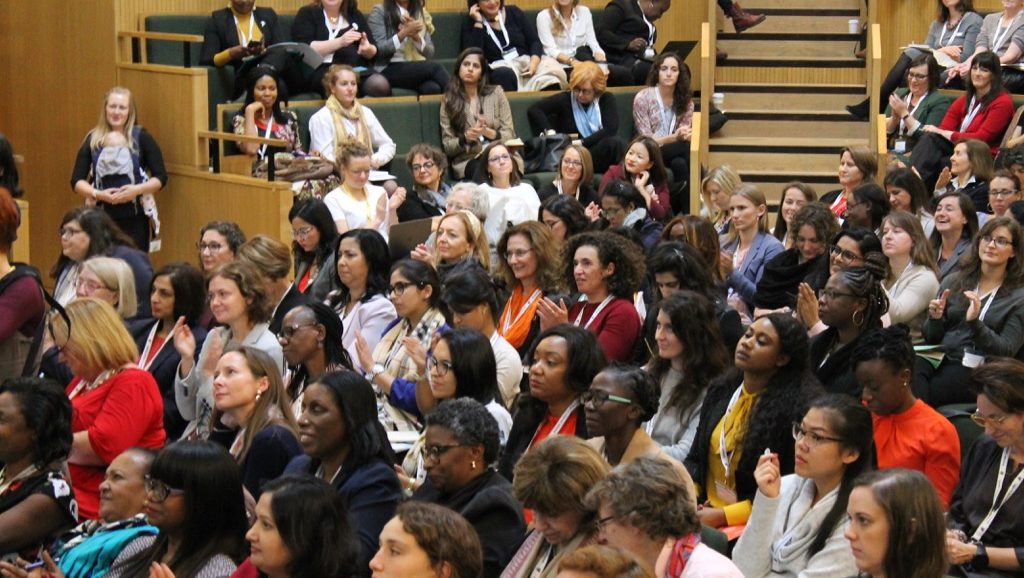In London for the Women Leaders in Global Health conference, I chatted in line for coffee with a British oncology nurse who had worked in Bangladesh. In a plenary session, I sat beside an Irish physician who worked in New Zealand. And on the stairs between sessions, I had a lengthy discussion with a woman who leads gender equality programs for USAID in Africa, Asia, and Latin America.
For two days in November, the London School of Hygiene and Tropical Medicine seemed like the absolute center of the global health universe.
More than 900 people came from more than 80 countries. In formal sessions and impromptu hallway conversations, they shared information, agreed to join forces to solve regional problems, and planned future collaborations and events.
"I want you to know that this is not just another conference," said Heidi Larson, PhD, who directs the Vaccine Confidence Program at LSHTM, in her welcoming remarks. "We've got the seeds of a movement going on."
And that movement took its first steps at Stanford in 2017, when Michele Barry, MD, senior associate dean for global health, convened the first WLGH Conference on the Stanford campus.
I joined Barry's team at the Center for Innovation in Global Health after the first conference so London was my first experience with this powerful collection of people. It wasn't my first big event -- I'd been a sportswriter early in my career and had been to World Cup Soccer (or football as the rest of the world calls it), American professional football, and the Olympics.
The conference in London, however, was the first big gathering I attended where the men stood out because they were so rare. As I looked around in the plenary sessions, I saw a sea of women who spend their days treating patients, teaching medical students, and crafting health policy.
I included the voices of some of these accomplished women in a feature for Stanford News.
Men were strikingly in the minority, but many people I spoke to said they wished more men had attended. The conference aims to help more women ascend to leadership roles in global health, but no one was arguing to replace the current crop of decision makers -- 75 percent are men -- with an all-female slate.
From the podium in big sessions and smaller break-out rooms, women proposed a different, more inclusive form of leadership, one where the leaders more closely resemble the diverse population they lead and serve.
Kavita Ramdas, who directs the Women's Rights Program for the Open Society Foundations, might have said it best:
To me, on the path to gender justice, we need leaders who are so strong that they can be gentle, so educated they can be humble, so fierce they can be compassionate, so passionate they can be rational, and so disciplined that we can all truly be free.
Photo by Jody Berger




